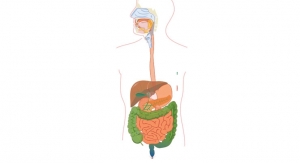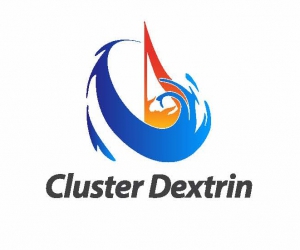03.27.14
A study, soon-to-be published in the Journal of Sports Medicine and Physical Fitness, found that athletes who consumed a beverage with Cluster Dextrin had lower levels of interleukin following vigorous exercise, compared to those who used a glucose-based drink.
These results were determined when researchers conducted urinalysis testing of athletes who had used beverages containing Cluster Dextrin upon completion of a duathlon (a series comprising a 5 kilometer run, followed by 40 kilometers of cycling and another 5 kilometer run). The level of interleukin content present [(IL)-8, (IL)-10, (IL)-12p40] was significantly diminished compared to those who drank a glucose-based mixture.
Cluster Dextrin, also known as Highly Branched Cyclic Dextrin or HBCD, was developed in Japan by Ezaki Glico Co., Ltd. (Glico) and is distributed by Glico Nutrition Co., Ltd. It was formulated to provide the optimal benefit a carbohydrate-based supplement can provide in the performance of vigorous exercise.
The analysis by Glico researchers revealed that Cluster Dextrin attenuated the release of stress hormones, including cytokines, induced by physical activity, far more than glucose, proving its effectiveness in reducing the depredating effect that vigorous exercise has on the immune system. The net result is an improvement in overall athletic conditioning and performance, said the company.
In 2013 Glico launched human clinical trials of Cluster Dextrin, involving 24 adult male athletes. Tests showed that during cycling exercise, the group administered 15 grams of Cluster Dextrin performed better than those who took the same amount of a maltodextrin.
After 30 minutes of exercise, the subjects were examined for their level of exhaustion and reported it to be notably lower after taking Cluster Dextrin compared with maltodextrin. Blood was also drawn, and the Cluster Dextrin group exhibited higher blood sugar levels. This is due to the fact that Cluster Dextrin does not break down precipitously in the small intestine. Unlike sports drinks relying on low-molecular weight carbohydrates, the rapid breakdown of which rockets the release of insulin in the bloodstream, in turn inhibiting body fat conversion to energy, Cluster Dextrin maintains a slow release, offering the ideal interaction between carbohydrate breakdown and the normal release of free fatty acids. According to Glico, the result of Cluster Dextrin’s slow release is superior carbohydrate absorption and superior endurance. The company intends to release the results of these analyses in the coming months.
For more information: www.glico.co.jp/en/material/cluster_dextrin/
These results were determined when researchers conducted urinalysis testing of athletes who had used beverages containing Cluster Dextrin upon completion of a duathlon (a series comprising a 5 kilometer run, followed by 40 kilometers of cycling and another 5 kilometer run). The level of interleukin content present [(IL)-8, (IL)-10, (IL)-12p40] was significantly diminished compared to those who drank a glucose-based mixture.
Cluster Dextrin, also known as Highly Branched Cyclic Dextrin or HBCD, was developed in Japan by Ezaki Glico Co., Ltd. (Glico) and is distributed by Glico Nutrition Co., Ltd. It was formulated to provide the optimal benefit a carbohydrate-based supplement can provide in the performance of vigorous exercise.
The analysis by Glico researchers revealed that Cluster Dextrin attenuated the release of stress hormones, including cytokines, induced by physical activity, far more than glucose, proving its effectiveness in reducing the depredating effect that vigorous exercise has on the immune system. The net result is an improvement in overall athletic conditioning and performance, said the company.
In 2013 Glico launched human clinical trials of Cluster Dextrin, involving 24 adult male athletes. Tests showed that during cycling exercise, the group administered 15 grams of Cluster Dextrin performed better than those who took the same amount of a maltodextrin.
After 30 minutes of exercise, the subjects were examined for their level of exhaustion and reported it to be notably lower after taking Cluster Dextrin compared with maltodextrin. Blood was also drawn, and the Cluster Dextrin group exhibited higher blood sugar levels. This is due to the fact that Cluster Dextrin does not break down precipitously in the small intestine. Unlike sports drinks relying on low-molecular weight carbohydrates, the rapid breakdown of which rockets the release of insulin in the bloodstream, in turn inhibiting body fat conversion to energy, Cluster Dextrin maintains a slow release, offering the ideal interaction between carbohydrate breakdown and the normal release of free fatty acids. According to Glico, the result of Cluster Dextrin’s slow release is superior carbohydrate absorption and superior endurance. The company intends to release the results of these analyses in the coming months.
For more information: www.glico.co.jp/en/material/cluster_dextrin/

















